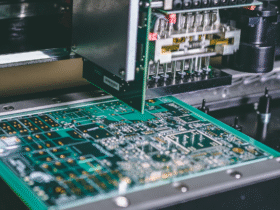Introduction
The intersection of technology and creativity has always spurred innovation. One of the most intriguing developments in recent years is the advent of AI music generators. These advanced tools are not only transforming how music is composed but also redefining the boundaries of artistic expression. From the initial concept to the final composition, AI is reshaping the music industry in ways we could hardly imagine a decade ago. This article delves into the intricacies of AI music generators, their workings, and their profound impact on music production and beyond.
What is AI Music Generator?
AI music generators are sophisticated algorithms designed to create music autonomously. These systems leverage artificial intelligence to analyze vast amounts of musical data, learning patterns and structures to generate original compositions. Unlike traditional methods of music creation, which rely heavily on human creativity and skill, AI music generators can produce melodies, harmonies, and rhythms with minimal human intervention. This innovation is opening up new possibilities for musicians and producers, offering a fresh perspective on what it means to create music. The use of an AI music generator enables composers to explore new genres and styles effortlessly, thus broadening their creative horizons.
How Does AI Music Generator Work?
AI music generators operate through complex algorithms that mimic the cognitive processes involved in music composition. These systems are typically based on neural networks and deep learning models, which enable them to understand and replicate the nuances of musical creativity.
Neural Networks in Music Generation
Neural networks are at the core of AI music generators. These networks are trained on large datasets of existing music, allowing them to recognize patterns and styles.
- Neural networks process musical data through layers, extracting features at each stage.
- They learn to generate new music by mimicking the styles and structures found in the training data.
- This process enables the creation of music that is stylistically coherent and musically rich.
Machine Learning Algorithms
Machine learning algorithms play a crucial role in refining the output of AI music generators. These algorithms continuously improve the system’s performance by learning from feedback and new data.
- Algorithms adapt to different musical genres and styles.
- They enhance the AI’s ability to generate more sophisticated and varied compositions.
- Continuous learning ensures that the AI remains up-to-date with current musical trends.
Data Processing and Pattern Recognition
AI music generators rely on extensive data processing and pattern recognition to create music that resonates with listeners.
- They analyze musical elements such as melody, harmony, rhythm, and dynamics.
- Pattern recognition allows the AI to identify and replicate successful musical structures.
- This capability results in music that is not only technically sound but also emotionally engaging.
Key Features of AI Music Generator
AI music generators come with a plethora of features that make them powerful tools for music creation. These features enhance their usability and effectiveness, making them accessible to a wide range of users.
Real-Time Composition
One of the most impressive features of AI music generators is their ability to compose music in real-time.
- They can generate music instantly based on user inputs or pre-defined parameters.
- This feature is particularly useful for live performances and on-the-fly music production.
- Real-time composition allows for spontaneous creativity and experimentation.
Customizability
AI music generators offer a high degree of customizability, allowing users to tailor the output to their specific needs.
- Users can adjust parameters such as tempo, key, and style.
- Customizability ensures that the generated music aligns with the user’s vision and requirements.
- This feature makes AI music generators versatile tools for various musical projects.
Integration with Digital Audio Workstations (DAWs)
Seamless integration with DAWs is another key feature of AI music generators.
- They can be used alongside traditional music production software.
- Integration with DAWs allows for more refined editing and mixing of the generated music.
- This compatibility enhances the overall music production workflow.
Adaptive Learning
Adaptive learning enables AI music generators to improve their performance over time.
- They learn from user feedback and new musical data.
- Adaptive learning ensures that the AI remains relevant and continues to produce high-quality music.
- This feature contributes to the long-term usability and effectiveness of AI music generators.
How AI is Changing the Role of Music Producers?
AI music generators are significantly altering the role of music producers. Traditionally, producers have been the gatekeepers of musical creativity, responsible for overseeing the entire production process. However, with AI, the landscape is shifting. Producers now have access to powerful tools that can handle various aspects of music creation, from composing melodies to mixing tracks. This technological assistance allows producers to focus more on the creative and strategic aspects of their work, such as conceptualizing projects, refining artistic direction, and exploring new sounds. In essence, AI is empowering producers to push the boundaries of innovation while maintaining artistic integrity. For those seeking alternatives, exploring a suno ai alternative might provide different tools and approaches, further enhancing the music production process.
Who is Suitable for Using AI Music Generators?
AI music generators are versatile tools suitable for a wide range of users, from amateur musicians to professional producers. Their accessibility and ease of use make them an attractive option for anyone interested in music creation.
Amateur Musicians
Amateur musicians can greatly benefit from AI music generators.
- These tools provide an easy entry point into music composition.
- They help beginners understand musical structures and patterns.
- AI music generators can serve as a learning tool, enhancing musical skills and creativity.
Professional Producers
Professional producers can leverage AI music generators to enhance their workflow.
- AI can handle repetitive and time-consuming tasks, freeing up producers for more creative work.
- It provides new ideas and inspiration, pushing the boundaries of traditional music production.
- AI music generators can improve efficiency and productivity in professional studios.
Educators and Students
In the educational sector, AI music generators are valuable resources for teaching and learning music.
- They offer practical examples of music theory and composition.
- Educators can use them to demonstrate musical concepts in real-time.
- Students can experiment with music creation, fostering a deeper understanding of the subject.
Challenges of Using AI Music Generator in Song Creation?
The advent of AI music generators brings a host of opportunities for music creation, but it also introduces several challenges that must be addressed. These challenges range from technical limitations to ethical concerns, each impacting the adoption and effectiveness of AI in music production. Understanding these hurdles is crucial for integrating AI technology in a way that enhances, rather than hinders, the creative process.
Technical Limitations
AI music generators, while impressive, are not without flaws. One major technical challenge is their inability to fully capture the emotional nuances that human composers naturally infuse into their music. AI-generated compositions can sometimes sound mechanical or lack the depth and subtlety found in human-created music. Additionally, technical glitches and inaccuracies can occur, leading to outputs that do not meet the desired quality standards. These issues highlight the need for continuous improvement and refinement of AI algorithms to better mimic human creativity and emotional expression. Despite these limitations, the AI song generator continues to evolve, promising more sophisticated and emotionally resonant outputs in the future.
Creative Constraints
Another significant challenge is the potential for AI to impose creative constraints on musicians and producers. While AI can generate music quickly and efficiently, there is a risk that over-reliance on these tools could lead to homogenization, where music lacks originality and distinctiveness. Musicians might become dependent on AI, which could stifle their creative growth and limit their artistic development. Balancing the use of AI with human creativity is essential to ensure that the music produced remains innovative and unique.
Ethical Considerations
The use of AI in music composition raises several ethical questions that need careful consideration. Issues of copyright and ownership of AI-generated music are complex and unresolved, posing legal challenges for artists and producers. Furthermore, the integration of AI in music production may impact the job market, potentially displacing human musicians and composers. Addressing these ethical concerns requires the development of clear guidelines and regulations that protect the interests of human creators while fostering technological innovation.
Future of AI Music Generator in Music Composition?
The future of AI music generators in music composition is both exciting and uncertain. As technology continues to evolve, AI is likely to become an integral part of the music creation process. We can expect more advanced algorithms capable of producing increasingly sophisticated and emotionally resonant music. Moreover, the integration of AI with other emerging technologies, such as virtual reality and augmented reality, could lead to entirely new forms of musical expression. However, it will be essential to address the challenges and ethical considerations associated with AI to ensure that it enhances rather than diminishes the artistic value of music.
Conclusion
AI music generators are revolutionizing the creative process in the music industry. From simplifying composition to expanding the possibilities for musical innovation, these tools are changing how music is made and experienced. While there are challenges and ethical considerations to navigate, the potential benefits of AI in music are immense. As we move forward, it is crucial to find a balance that leverages the strengths of AI while preserving the unique and irreplaceable qualities of human creativity.













Leave a Reply